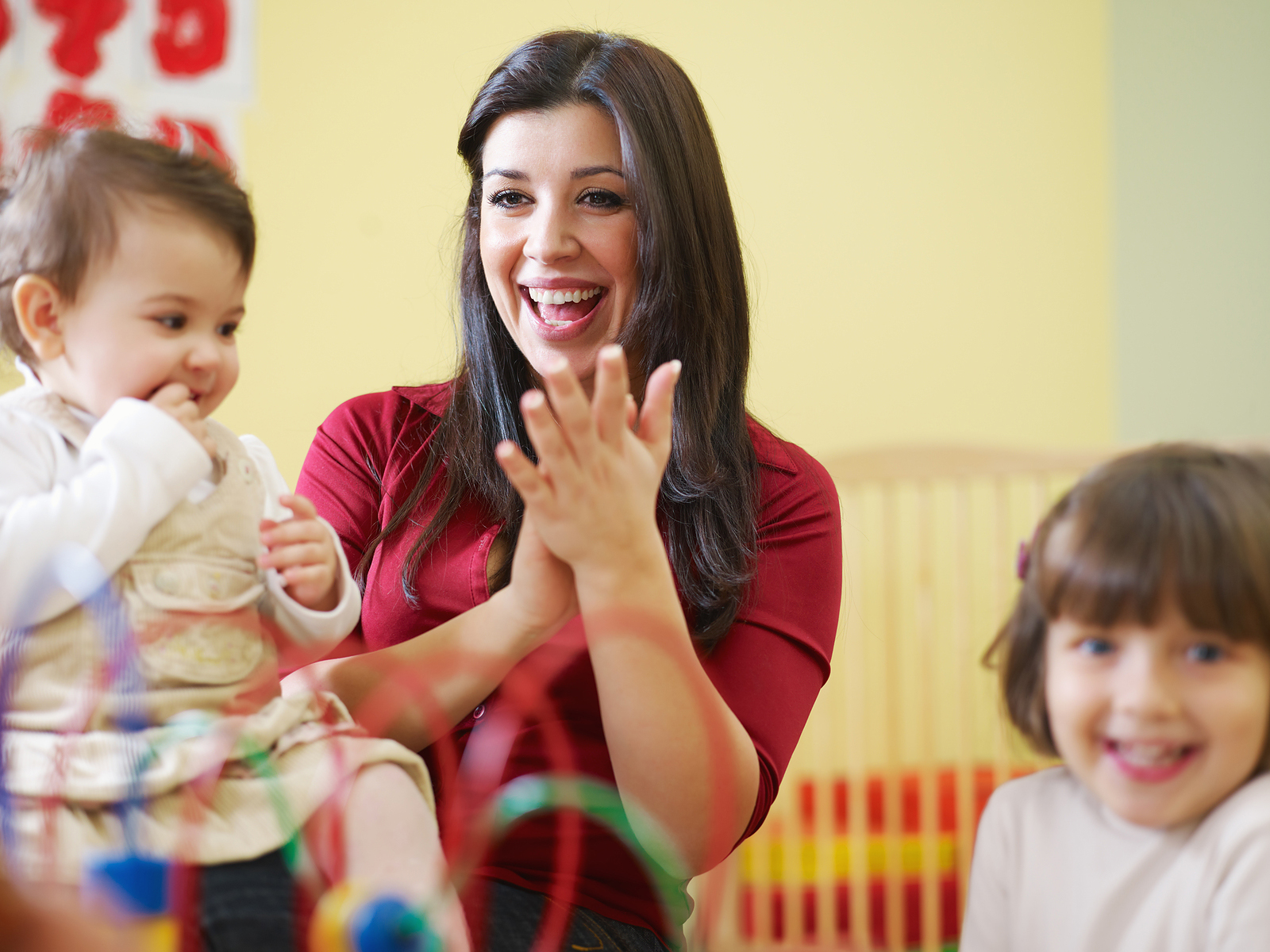Feelings, Friends, & Fall
Concepts … loud/quite, up/down
Sounds … H, Short A (apple, happy)
Children first begin to develop awareness of their emotions, and as they mature, they begin to learn how to self-regulate their emotions. When your child is angry, you can label his or her emotions (e.g. “You’re showing me that you are mad”).  Or if you are playing in the park, and another child is crying, you can label it for your child (e.g. “Look, she is crying. She feels sad”). You can also point out what his or her face is doing (e.g. “You’re feeling happy, because you are smiling and laughing”).
Or if you are playing in the park, and another child is crying, you can label it for your child (e.g. “Look, she is crying. She feels sad”). You can also point out what his or her face is doing (e.g. “You’re feeling happy, because you are smiling and laughing”).
Teach “Turn-taking” Rather Than “Sharing”
Around 18-24 months, children begin to share toys with their peers, and they may even extend a toy or object to another peer. This is a foundational skill for initiating play, which takes place between 24-36 months. Children must first have ownership of items before they can begin to participate in sharing. As play skills continue to develop, children begin play by offering a toy or using words to join an activity/interaction. These behaviors can be encouraged at home when playing with siblings or friends.
Use phrases and hand gestures such as patting your child’s chest and modeling “Ben’s turn”. After a short period, model something like “Ball is all done” or “Your turn is all done” and then facilitate turn-taking by patting a sibling for friend’s chest and saying “Now it’s Jesse’s turn”, etc. Pat your own chest and say “My turn” when asking your child to give the item to you.
Activities:
- Identify the emotions of characters in books that you are reading. Label only the basic emotions at this stage (e.g. happy, sad, mad, and tired). As your child masters these, you can move onto more complex emotions (surprised, scared, etc.).
- Make facial expressions and silly faces in a mirror and talk about what they look like.
- Label your own emotions for your child.
- Sing “If You’re Happy and You Know It”.
- If you’re happy and you know it clap your hands; if you’re sad and you know it wipe your tears; if you’re angry and you know it stomp your feet.
Emotion Book Recommendations:
When You’re Mad and You Know It by Elizabeth Cray, Shari Steelsmith, Mits Katayama
Today I Feel Silly by Jamie Lee Curtis
How Are You Peeling? by Saxton Freymann, Joost Elffers
The Way I Feel by Janan Cain
Glad Monster, Sad Monster by Ed Emberley, Anne Miranda




